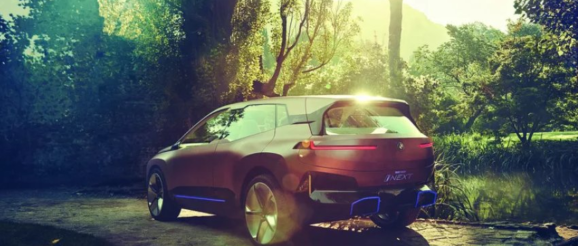Automakers pave the way for wireless upgrade innovation – Industry Europe

These new upgrades can include anything from apps to software for electronic control units to upgrade a car’s functionality and driving characteristics.
The innovators hope this will usher in a new breed of luxury car, allowing everything from automated driving to streaming services.
Current leading innovators, Tesla, currently offer similar incentives, such as a $10 a month wireless subscription model, or an acceleration boost for Model 3 owners for a one-time payment of £2,000. Many current Tesla models are also eligible for the Full Self-Driving Capability function – paving the way for self-driving vehicles – when it eventually ships, with an expected price tag of $7,000.
Many German brands are also expanding their roster of digital upgrades. Audi plans to sell e-tron owners an enhanced exterior digital lighting system through the Audi Connect portal. BMW’s top package is its Connected Drive online store. At €279, it includes over-the-air, map updates and online speech processing.
Mercedes-Benz options include downloadable functions, including a Track Pace for AMG owners for the price of €297. This feature lets drivers track and record lap times and includes a heads-up display to allow them to visualise their performance.
The need to find additional revenue is growing more urgent as global automotive production flattens and new regulations and ownership habits threaten the traditional business model.
Andrew Poliak, chief technology officer for Panasonic Automotive in North America, said at the 2020 Consumer Electronics Show in Las Vegas: “Porsche once said it would rather sell the same car 1,000 times rather than 1,000 cars.
“Rideshares and micro-mobility are going to reduce sales of standard cars, so automakers need to find a way to monetise those vehicles post-sale.”
Luigi Ksawery Luca, director of mobility and connected car at Toyota Europe, said: “ECall is the main driver for us for getting the car connected, as it has been for every other automaker.
“Now that it’s connected, we see many opportunities.”
This comes as new legislation has given European automakers a move to innovate, as new regulations mean cars must meet certain parameters to be considered road-safe, including the requirement that all cars must have the ability to make automatic emergency calls.
Toyota has admitted to targeting “both profit and improvement” in its connective services, according to Luca. It is currently conducting a trial in which vehicle data is used to detect defects and help quality control.
This is similar to the usage-based insurance system they already operate in Italy, in which Luca admits could be used to offer a more sophisticated system that rewards careful drivers.
Mr Luca said: “Tesla planned its cars from the beginning with this purpose. For us, so far, it is an add-on. The car was not conceived in this way, and it is now a priority to introduce new architecture.”
The 5G network represents a fresh field for innovation for automakers. The increased speeds and productivity allow for information to be transmitted at a faster and more efficient rate. For example, research firm Gartner estimates that by 2023, automotive applications will represent 53% of the data transmitted over 5G, as cars will be connecting to both cloud servers and their environment.
BMW has announced it shall be the first automaker to offer a car with 5G capabilities. In a statement made in January, the automaker announced that “5G technologies are a prerequisite for autonomous driving.”
5G transmits data ten times faster than its predecessor, which enables many benefits, including high-definition map updates, movie streaming and a “V2X communication” that lets the car broadcast its location to enhance its safety.
Other features from different car manufacturers are still being announced.
